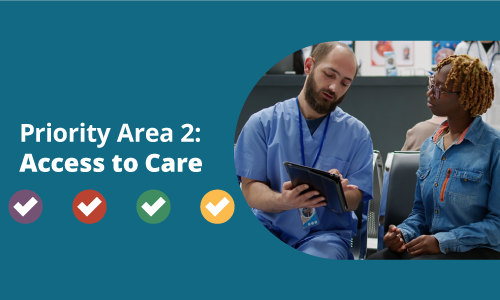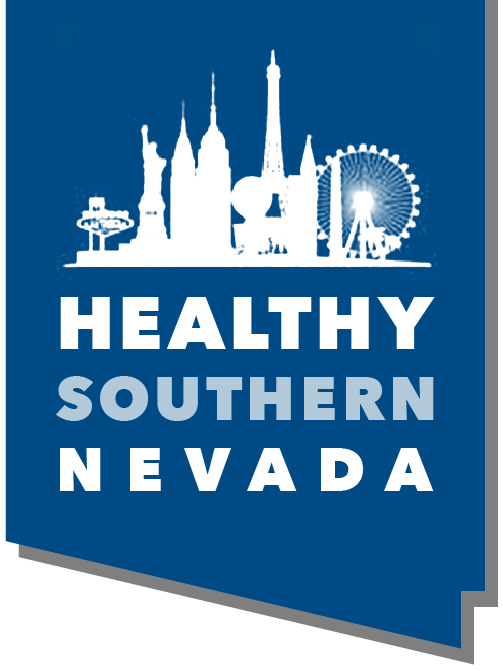Promoting health equity through access and utilization of care is important as everyone has the right to be healthy. Health should not depend on the ZIP code, economic status, or an individual’s heritage, religion, and/or sexual orientation. Having access to care helps address disparities and it is the first step in creating a more equitable health system that improve the physical, social, and mental health for everyone in the community

Goal 1: Increase access to care in identified target populations by Access to Care Subcommittee (i.e., LGBTQ+, and uninsured and undocumented populations)
Objective 1.1: By December 2025, increase primary care centers providing mental health services in "medical deserts" for uninsured populations including undocumented and LGBTQ+ persons.
Action Step: Work with institutions of higher education to identify ZIP codes and data for underserved populations.
Action Step: Identify and document medical deserts in Southern Nevada
Action Step: Identify local, regional, and state level funding opportunities to support construction of new primary care facilities.
Action Step: Increase the total number of mental health professionals in the State by supporting individuals seeking licensure through free supervision.
Goal 2: Increase patient confidence in choosing primary care physicians with assistance of care coordinators
Objective 2.1: By December 2023, increase the number of healthcare providers documenting sexual orientation and gender identity on intake forms.
Action Step: With assistance of community partners, create a list of guidelines and revise intake forms.
Action Step: Implement training to collect data on indicators within medical communities.
Action Step: Provide office resources to indicate support for LGBTQ+ and undocumented communities
Action Step: Survey communities to document facilities data collection processes.
Goal 3: Fewer undocumented and LGBTQ+ individuals will access emergency departments for non-urgent health problems
Objective 3.1: By December 2025, create or adapt a comprehensive cultural responsiveness training focusing on LGBTQ+ and undocumented communities.
Action Step: Identify community partners to inform training material development.
Action Step: Create an interest list to document need among local providers.
Objective 3.2: By December 2025, increase medical staff trained with the cultural response training.
Action Step: Propose training as a CEU opportunity for providers
Action Step: Identify a delivery platform for training
Action Step: Build community relationships, including CHW's, to deliver trainings.
What the data say:
- About 80% of U.S. counties lack adequate access to healthcare.
- Two populations in particular were identified by the CHIP Steering Committee, and the community at large, as being at higher risk for inadequate physical and mental health care: sexual and gender minorities (i.e., LGBTQ+ persons) and undocumented individuals.





 Significantly better than the overall value
Significantly better than the overall value Significantly worse than the overall value
Significantly worse than the overall value No significant difference with the overall value
No significant difference with the overall value